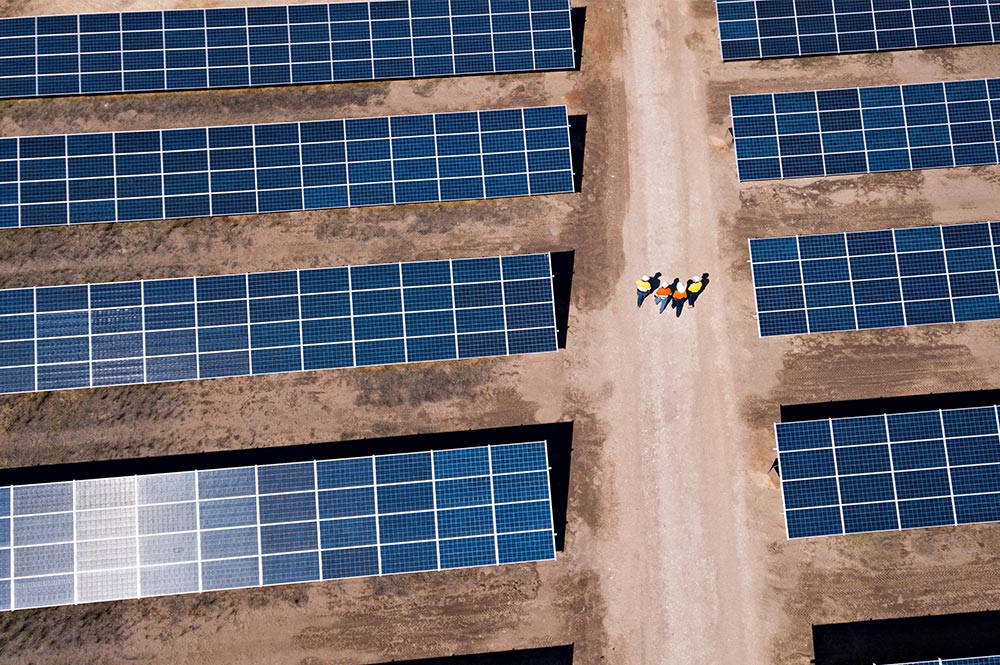The Australian Renewable Energy Agency (ARENA) funding will help facilitate the development of a new testing platform designed to aleviate grid connection problems which remain a major issue across the National Electricity Market (NEM) and have affected multiple wind and solar and battery projects.
Large-scale generators looking to connect to Australia’s main grid are required to negotiate and comply with a set of performance standards. Currently, compliance with these Generator Performance Standards (GPS) is demonstrated by extensive power system modelling that must then be validated during onsite commissioning. This process can be challenging and often causes lengthy delays to connect the renewable power projects to the grid.
Researchers from the University of Queensland (UQ) have teamed with Brisbane-based electrical engineering contractor EPEC Group to develop a new platform which is designed to allow common commissioning issues to be identified and resolved in a custom-designed testing environment, prior to installation on site.
UQ lead researcher Dr Richard Yan said the platform, being designed as part of a $1.46 million study being conducted in the university’s solar renewable energy laboratory, could help to facilitate faster commissioning of renewable energy projects by allowing them to resolve any issues with the modelling before commissioning.
EPEC said connecting to the electricity network represents the single largest barrier to most renewable energy projects with the company’s own research revealing that many large-scale solar and battery projects have experienced connection delays, which substantially affect investor confidence and increase costs of new renewable generation projects.
Yan said the off-site testing approach could become standard practice for renewable generators and help to accelerate and de-risk new generation connecting to the grid, adding faster and lower-risk commissioning will result in lower-cost renewable energy projects and reduced barriers for hybrid projects.
‘’The new testing platform will be a market-leading development to support the growing number of renewable energy projects in Australia,” he said.
If the testing platform is successful, UQ and EPEC aim to commercialise the technology and apply it to future renewable energy projects across the NEM.
ARENA acting chief executive officer Chris Faris said the testing platform could help accelerate Australia’s transition to renewable electricity.
“To meet our national 2030 and 2050 emissions reductions goals, we must accelerate the pace of commissioning, installing and connecting renewable energy projects,” he said. “If we can streamline the commissioning process through smart application of technology like this project, we can reduce the costs and risks associated with bringing new generators online.
“This project has the potential to significantly speed up the process for bringing new solar, wind and battery projects online, so we’re excited to see what the University of Queensland team delivers.”
This content is protected by copyright and may not be reused. If you want to cooperate with us and would like to reuse some of our content, please contact: editors@pv-magazine.com.









1 comment
By submitting this form you agree to pv magazine using your data for the purposes of publishing your comment.
Your personal data will only be disclosed or otherwise transmitted to third parties for the purposes of spam filtering or if this is necessary for technical maintenance of the website. Any other transfer to third parties will not take place unless this is justified on the basis of applicable data protection regulations or if pv magazine is legally obliged to do so.
You may revoke this consent at any time with effect for the future, in which case your personal data will be deleted immediately. Otherwise, your data will be deleted if pv magazine has processed your request or the purpose of data storage is fulfilled.
Further information on data privacy can be found in our Data Protection Policy.